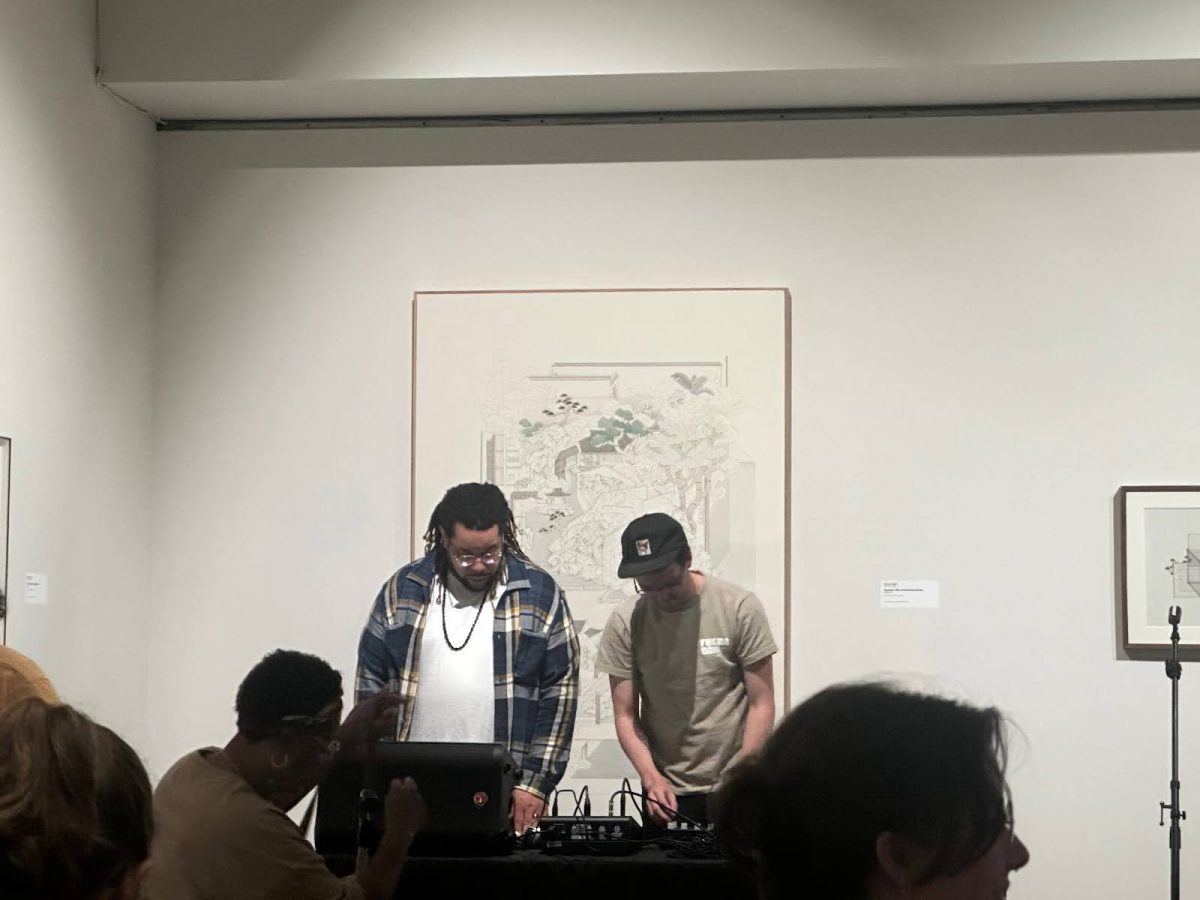The Dillon Johnston Writers Reading series kicked off the semester on Oct. 1 with a performance by Steven Dunn and Drew Shamir, who were brought to Wake Forest by creative writing Professor Joanna Ruocco. Steven Dunn is a Whiting Award winner who has written three novels — “Potted Meat,” “water & power” and “Tannery Bay.” Drew Shamir is a writer, rapper, producer and lecturer based in Greensboro, N.C.
Almost all of the chairs in the Hanes Gallery were taken and the atmosphere was warm and buzzing, largely thanks to the big, inviting personalities of Dunn and Shamir. The two artists are cousins, and they brought family with them to the event, including Dunn’s mother. This familial dynamic instantly put everyone at ease and set the mood as one of celebration and coming together.
“I think it was especially cool that they were cousins,” junior Molly Steur said. “The familial connection was really powerful, especially because so much of Steven Dunn’s work was connected to his family and his child. I really liked the way they built off of each other — it was very clear that they had an organic relationship.”
Dunn and Shamir began by reading aloud a section from Dunn’s upcoming work, in which Dunn played himself and Shamir played Dunn’s friend, who goes by Leonard West Virginia. While Virginia is traveling the world, he gives Dunn clues regarding his whereabouts — Italian women, sun-drenched lounging on a Mediterranean island, etc. This section got a lot of laughs, and I found it touching and even inspiring to watch two cousins get to perform their artwork for such an amicable, invested crowd. Dunn said that they used to collaborate like that all the time as children — except now they get to perform as adults.
After that, Shamir read aloud an essay he wrote about “What Goes Around,” a track from Nas’s 2001 album “Stillmatic.” Shamir, who described himself as a “politically charged rapper,” focused on how Nas’s lyrics confront perennial issues in the Black community, such as drug abuse, medical racism and the impact of Western beauty standards on Black women.
Then Dunn returned to the stage to read from his upcoming travel book, in which he recounts a trip he took with his child to New York City to receive a prestigious literary prize. The piece was both heartwarming and hilarious. Dunn reflected on the unlikely success he has achieved as a writer, the microaggressions his child faced while attending school in Scotland, the death of their mother and the unbreakable bond they have formed over the years. To me, the reading did not feel like listening to someone read from their written work, but more like listening to a good friend tell a great story from memory.
“The event was a perfect demonstration of how good writing isn’t synonymous with using big words or fancy diction, but rather with speaking in your own voice and telling your story,” senior Enzo Menghini said.
The event wrapped up with a few live songs by Shamir.
“The mini-concert was hype… the beats reminded me of ‘90s rap, and they were talking a lot about Nas, so I definitely picked up on that inspiration,” senior Oliver Fallon said. “They did a very good job of blending comedy with some very emotional moments, so it really had everything in there.”
Shamir’s style felt deeply rooted in the rap tradition, with clear debts to Nas and Wu-Tang Clan, both of whom Shamir mentioned in his essay. I found Shamir’s performance to be a great way to close things out, as it sent everyone away in light spirits. There was something goofy and endearing about watching a room of English professors nod their heads to Shamir’s beats, and I was all for it.
Dunn and Shamir were the perfect choice to start the Dillon Johnston Writers Reading Series for this year, situating the event as a place where students can find important art that is both fun and accessible, and feel a part of a Wake Forest community while doing so.











